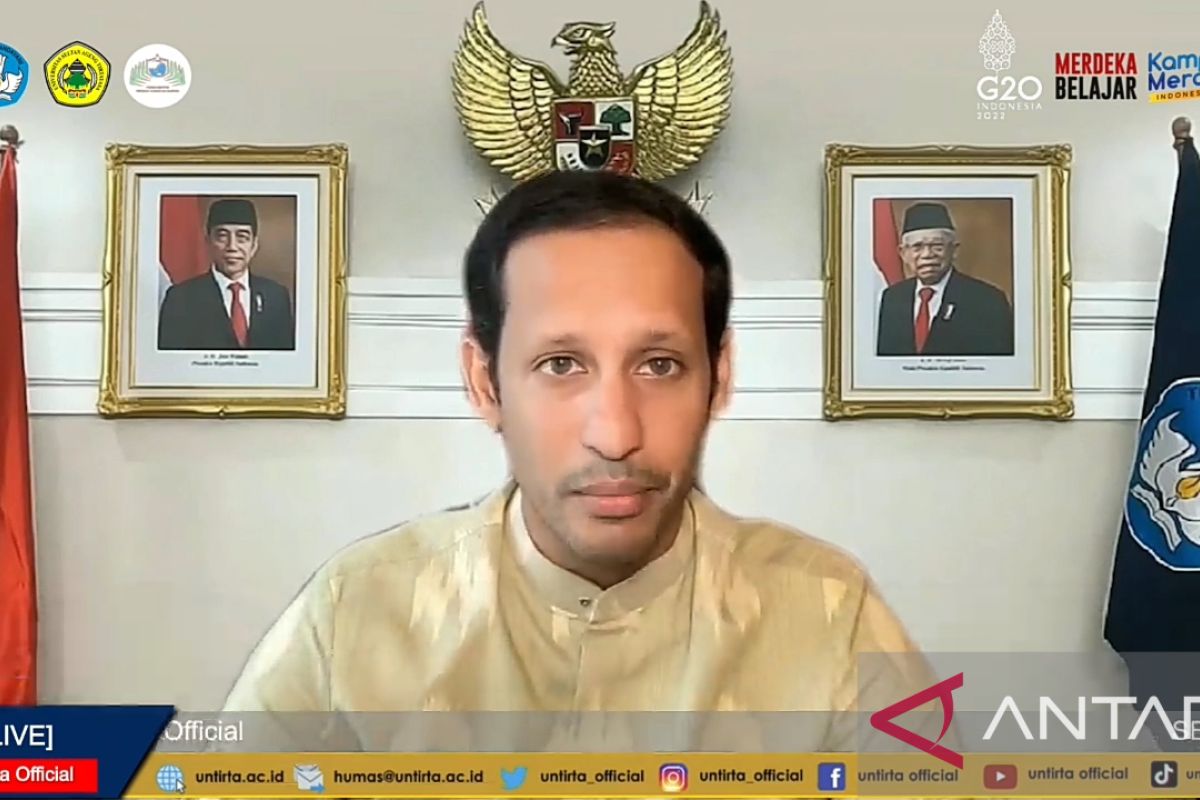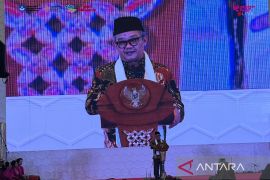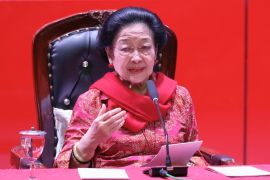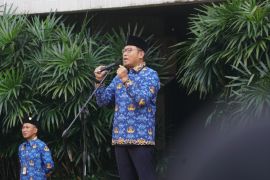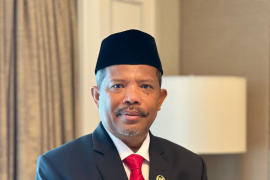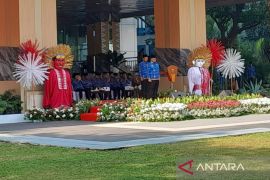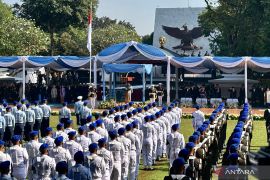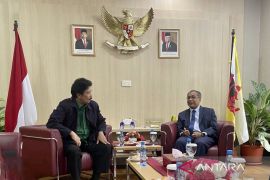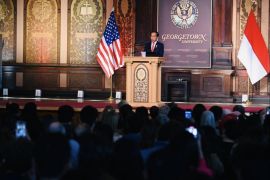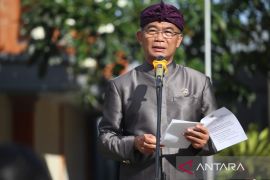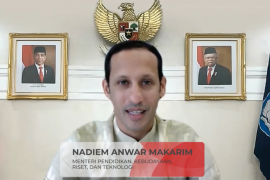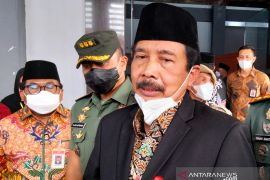"In line with President Joko Widodo's vision, namely prioritizing student character education as a whole based on Pancasila values, we are currently encouraging Pancasila education, which is more grounded and more relevant to the younger generation, through the implementation of the Merdeka curriculum," Nadiem Makarim said here on Wednesday.
He made the statement virtually while delivering his remarks at a national seminar on “Embracing Soekarno-Hatta's Ideas,” which was organized by the Rectors' Forum for Strengthening the Nation's Character (FRPKB).
The seminar was accessed from the official YouTube channel of Sultan Ageng Tirtayasa University here on Wednesday.
Related news: Pancasila is a covenant unifying Indonesia's diversity: Minister Laoly
According to Makarim, the changing times have led to the younger generation using different ways to interpret the spirit of nationalism, including practicing the noble values of Pancasila.
For that reason, the Merdeka curriculum encourages learning that is simpler, deeper, more independent, relevant, and interactive for all students in the country, he said. The curriculum can help improve literacy and numeracy skills as well as strengthen the character of “Pancasila students,” he added.
Pancasila students must have several attributes, including faith and piety to God, noble character, mutual cooperation, critical reasoning, creativity, independence, and global diversity, he expounded.
"Now, the profiles of Pancasila students are not only taught in schools, but we also continue to promote them through educational content that is broadcast on social media channels," he remarked.
That way the mobile values of Pancasila which were conceived by the first President of Indonesia, Soekarno and the first Vice President of Indonesia, Moh. Hatta, will be brought closer to the younger generation so that they can continue the dreams of the founders of Indonesia, the minister said.
Related news: Pancasila serves as inspiration for villages' sustainable development
Translator: Tri Meilani, Raka Adji
Editor: Suharto
Copyright © ANTARA 2022
